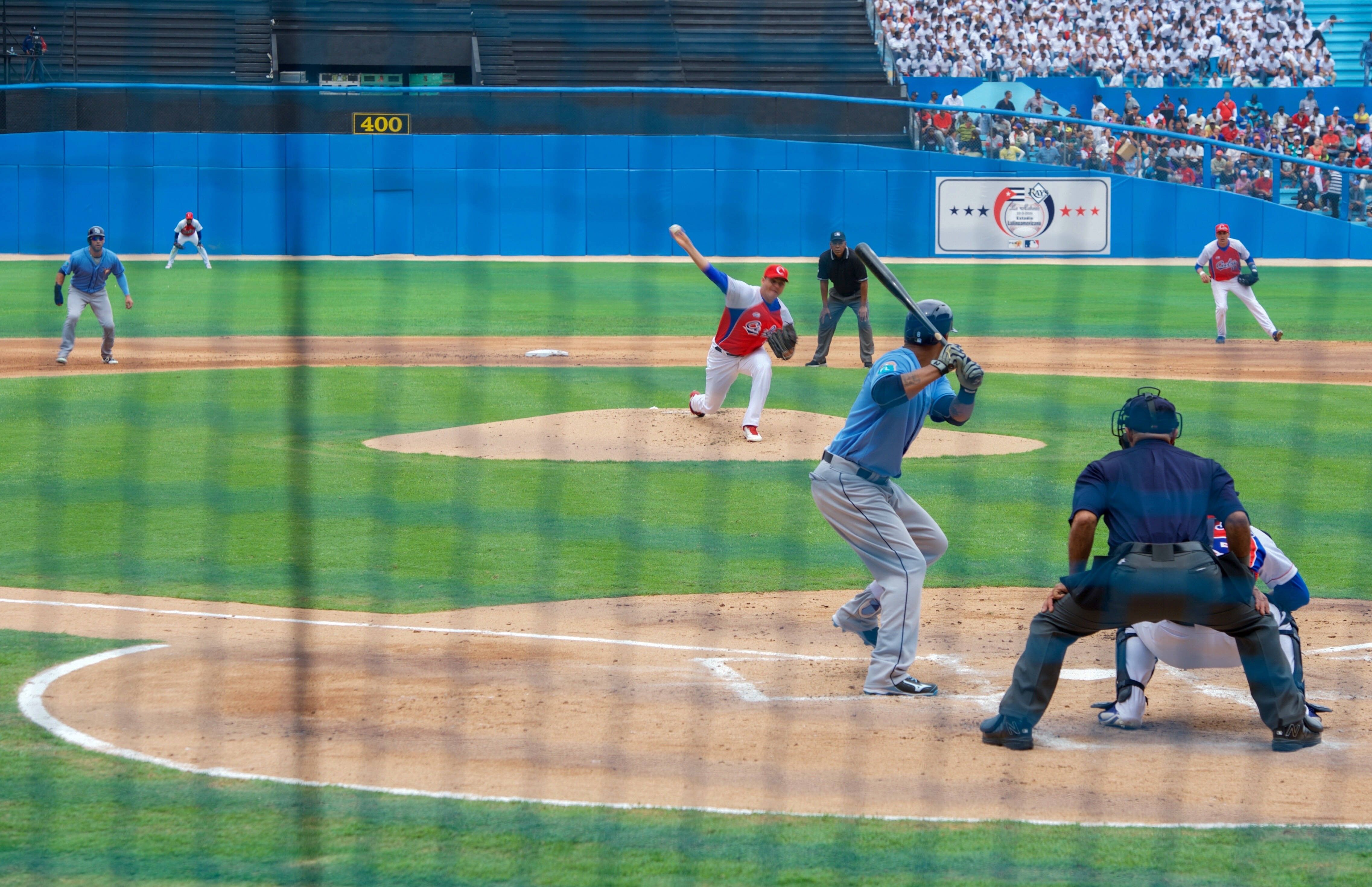Major League Baseball’s 30 clubs recently reported for spring training, signaling that the start of the 2024 season is right around the corner. Half of these teams’ pre-season sites are based in the “Grapefruit League” in Florida, a state which at its southernmost point is just 90 miles away from one of baseball’s most passionate and talent-laden countries in the world.
Last season, after 62 years as a franchise, the Texas Rangers clinched their very first World Series title. Their championship run was surprising after losing 94 games the year before. But perhaps more shocking was the rise of a man known as “El Bombi.” The Rangers’ most valuable player in the playoffs, Cuban outfielder Adolis García, was largely unheralded prior to the 2023 season. Despite Cuba’s geographical proximity to the United States and García’s robust talent, García’s journey stateside was not a simple one. “El Bombi” journeyed everywhere from Tokyo to Paris to Santo Domingo before eventually landing in North Texas.
García’s roundabout path to the big leagues is far from uncommon, however. Because of the long-standing friction between the United States and Cuba, any Cuban player wishing to compete in the Major Leagues had to defect through another country. García’s whirlwind journey en route to becoming a World Series champion illustrates the importance of normalizing relations between the United States and Cuba, and how baseball can play a central role.
Although they are regional neighbors, the United States has enforced an economic embargo against Cuba since 1962 in response to its Communist government. Under this policy, American businesses cannot conduct commerce with Cuba. And although the embargo has endured decades, the policy persists much to the chagrin of the international community. In fact, in every single year since 1992, the United Nations General Assembly has passed a resolution asserting that the United States should terminate its embargo on Cuba. This economic policy has tremendous adverse effects. In a report to the United Nations in 2020, Cuba suggested the embargo has resulted in a $144 billion loss.
Cuban-American relations improved temporarily during the Obama administration. In 2009, Cuban-Americans were allowed to return home to Cuba. A couple years later, Americans were allowed to visit the island for group and individual people-to-people visits. In 2016, a delegation including President Obama traveled to Cuba to watch an exhibition baseball game between the Tampa Bay Rays and the Cuban national team. Baseball is considered America’s “national pastime,” but it may be even more popular in Cuba. For as different as the countries are ideologically, baseball is something that unites both the United States and Cuba, and this was certainly on display in 2016.
Despite the significant progress the Obama administration made in Cuba, the Trump administration reinstated many of the prior restrictions. Suddenly, once again, Americans were no longer free to travel to Cuba unless for a specific reason. After Trump lost his reelection bid in 2020, President Biden’s tenure has been marked by foreign policy decisions in Gaza, Ukraine, and Afghanistan, Cuba has been less of a priority for the administration.
That said, the Biden administration has taken some minor steps towards progress in Cuba. Flights have resumed to Cuba from the United States with some regularity, and certain educational trips as well as professional research and meetings are once again permitted. Additionally, the administration has eased restrictions on remittances back to Cuba and has opened an application for Cuban families to visit the U.S. without waiting on migrant visas.
The two sides should re-engage diplomatically, and there are a couple of simple ways to accomplish that with baseball at the crux of it. First, the Biden administration should work with Major League Baseball to bring back exhibition games in Cuba. The 2016 exhibition game was seen by many as a resounding success. It had a profound impact on players, fans, and politicians alike. Revitalizing this game promotes goodwill between the countries with little political risk.
Major League Baseball could also contest some of its preseason spring training games there. There’s actually precedent for this — the Los Angeles Dodgers once previously called Havana their offseason home. MLB has played several games abroad in recent years to increase its international footprint, including in South Korea and the UK; nearby Cuba seems like another logical destination.
Finally, the two governments should work together to create a safe path for Cuban players to play in the United States, and vice versa. Doing so would allow players to compete at the highest level, travel back and forth, bring valuable remittances home, and to represent their country on the global stage. An agreement was struck between MLB and the Cuban Baseball Federation to allow players to play in the United States without defecting before the Trump administration struck it down. Biden’s administration should resurrect it.
Adolis García’s emergence last season delighted millions of Americans and Cubans alike and is emblematic of how the United States and Cuba can connect through baseball. It would be nearly impossible for the Biden administration to erase decades of tensions with Cuba, but initiating public diplomacy programs through baseball could be a home run.
















